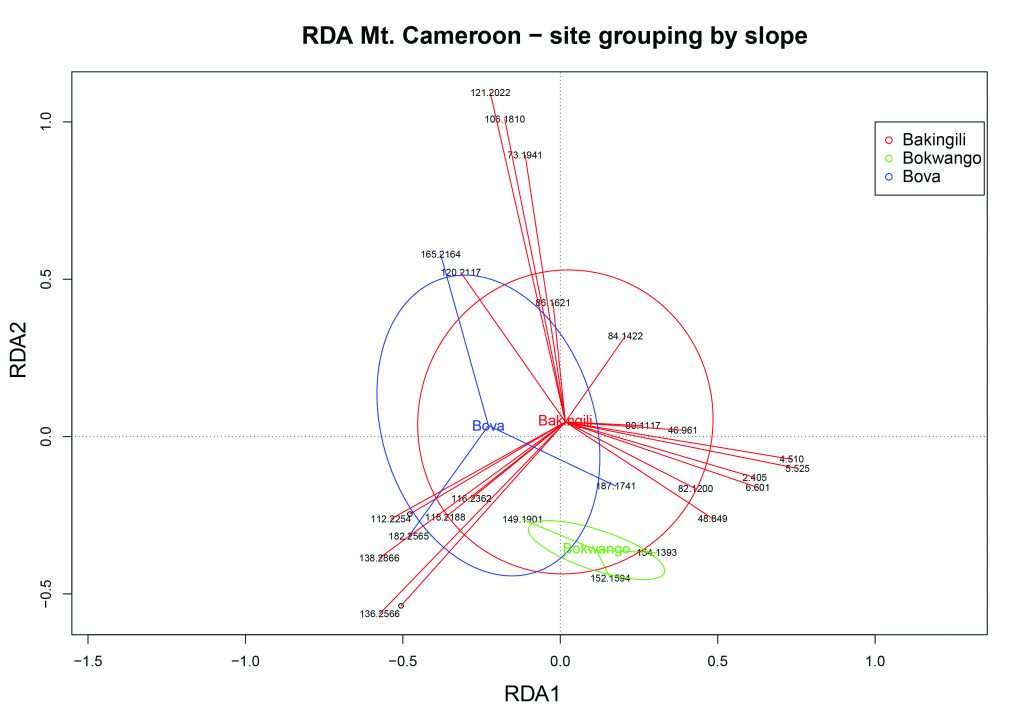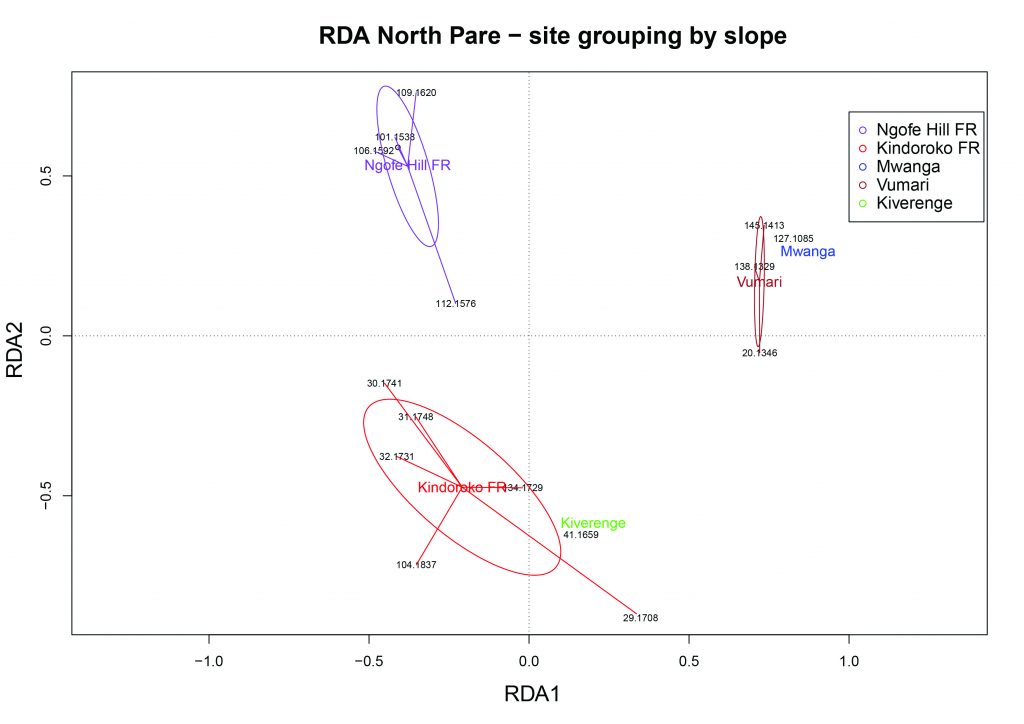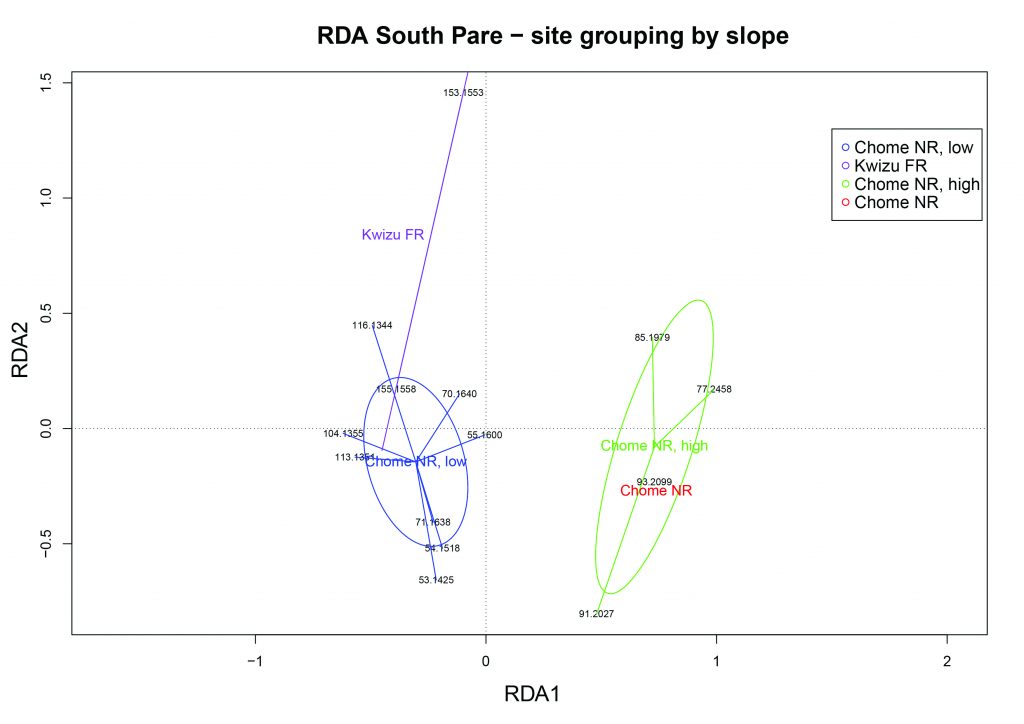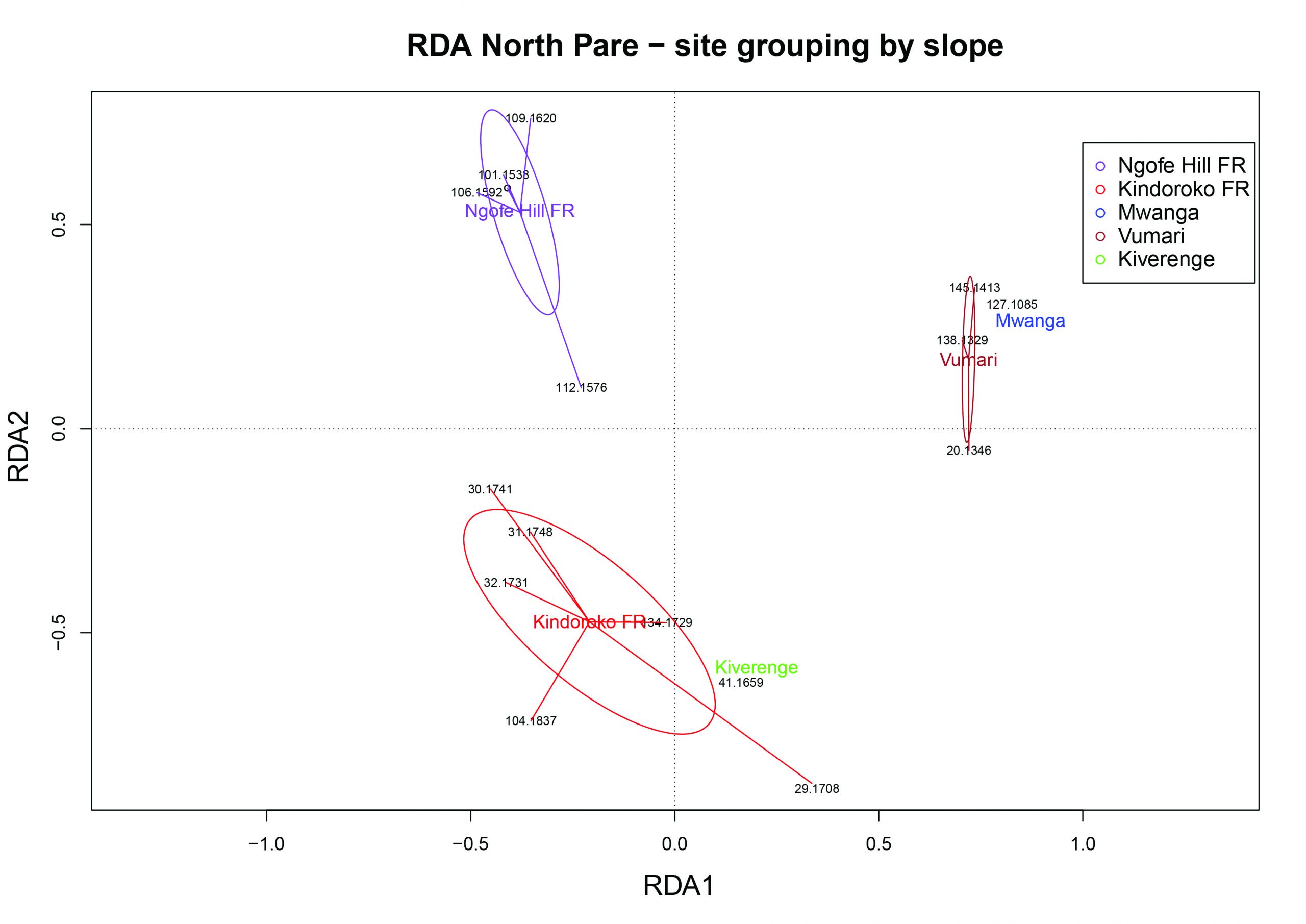Human-mediated alteration and conversion of forest ecosystems cause massive changes in the species compositions of communities in affected areas. The large scale monetary incentives of deforestation, especially in threatened tropical rainforests, plays a massive role in the rapid loss of habitats and nature seen worldwide. Even in the much less diverse and temperate Norway, the devastating loss of nature has made its way into the public eye, partly due to mainstream media attention, for instance in the popular mini-series on NRK called “Oppsynsmannen”.
The forests in Afrotropical mountains exemplifies how land use, deforestation and habitat conversion can create patchy forest ecosystems, with forest patches often isolated by large distances and essentially creating new, local community compositions in each fragment. This is much so the case for populated and unprotected forests on the Eastern Arc mountains in Kenya and Tanzania. On the other hand, the forests on Mt. Cameroon, the tallest mountain in West Africa, stand to contrast this perspective. Here, a national park has been established and protected, effectively hindering the human-mediated alteration of the biodiversity hot-spot.
As part of my master thesis which was completed earlier this year, I compared how beetle communities of the family Staphylinidae were composed in the forests of the abovementioned areas. Indeed, the results did provide an example of how species diversity decreases, communities become less similar and species ranges become highly limited due to the fragmentation of forests and loss of suitable habitats.



The results highlights the need for a stronger resolve to protect and preserve the most diverse and fragile ecosystems of our planet, instead of sawing off the branch we are all sitting on. At the same time, the case of Mt. Cameroon brings forth a hopeful example showcasing how proper management and preservation of vulnerable ecosystems can effectively prevent the rapid loss of habitats and sustain thriving communities. In other words, we know it can be done!
![]()
